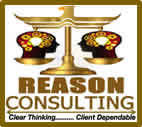Successful coaching requires trust, respect, sincere interest and personal regard and as well as finely tuned interpersonal communication skills. It’s not just counseling or advising employees; rather, coaching is a rigorous process intended to enable truly exceptional performance over an extended period of time. It applies advanced models and techniques to bring out the best in your employees. These methods can also be used in coaching yourself toward peak performance.
By taking this workshop, you’ll learn the basic theory and techniques of coaching. You will understand primary personal motivators, impediments to progress and ways to overcome these hurdles. Find out what drives you and those around you, and begin to tap into the reserve making your organization top notch.
Who Should Attend? Those who want to understand coaching and help themselves and others improve their performance and achieve their goals.
Objective:
By the end of the course, you’ll be able to use specific coaching techniques to enhance your performance as well as those whom you coach.
Topics:
Recognize your own strengths and weaknesses and maximize your strong points.
Demonstrate active listening and give positive feedback.
Recognize the significance of today’s coaching practice.
Demonstrate effective coaching skills using powerful questions.
Establish a non-threatening, positive coaching environment.
Promote a win-win situation in the work place and at home.
Length: One day
COACHING YOURSELF AND OTHERS FOR PEAK PERFORMANCE
AGENDA
Course Overview and Introductions
Coaching – Your Introduction to Transformational Change
The Newest Self-Development Discipline
Coaching vs. Mentoring, Counseling and Facilitation
Characteristics of a Great Coach – Do You Have What It Takes?
Competencies of Great Coaches Checklist
The Tools of Coaching – The Coaching Model
Self-Coaching Exercises
Prioritize Your Own Values
Is Your Life in Balance? Is Your Life in Balance?
Listening – The Key to Powerful Communications, Steps to Active Listening, Barriers to Your Listening
Nonverbal signals of an excellent listener, Nonverbal Talking and Building Rapport
Coaching Co-workers
Discovering Other’s Strengths
Helping Others set “Smart Goals”


